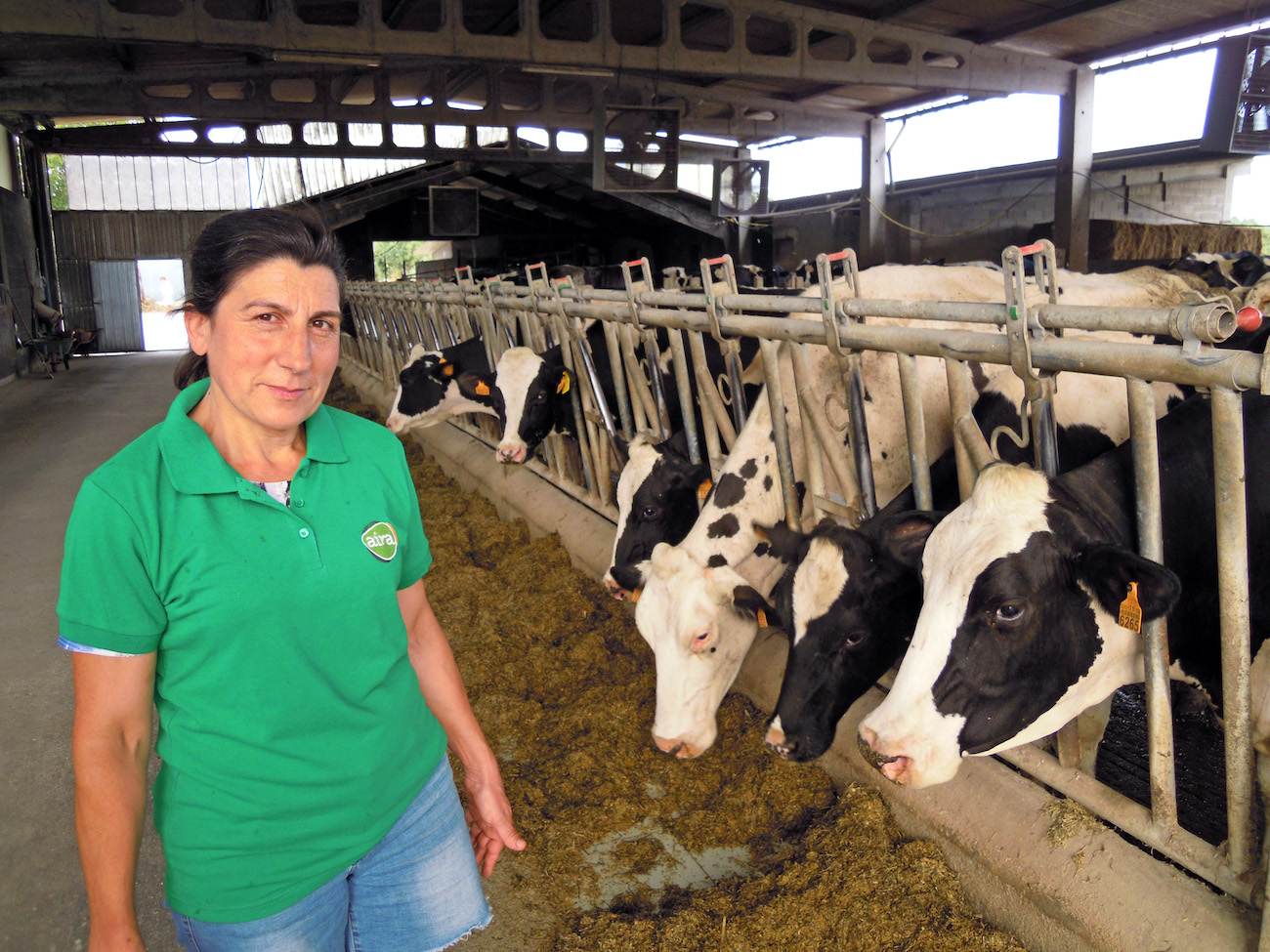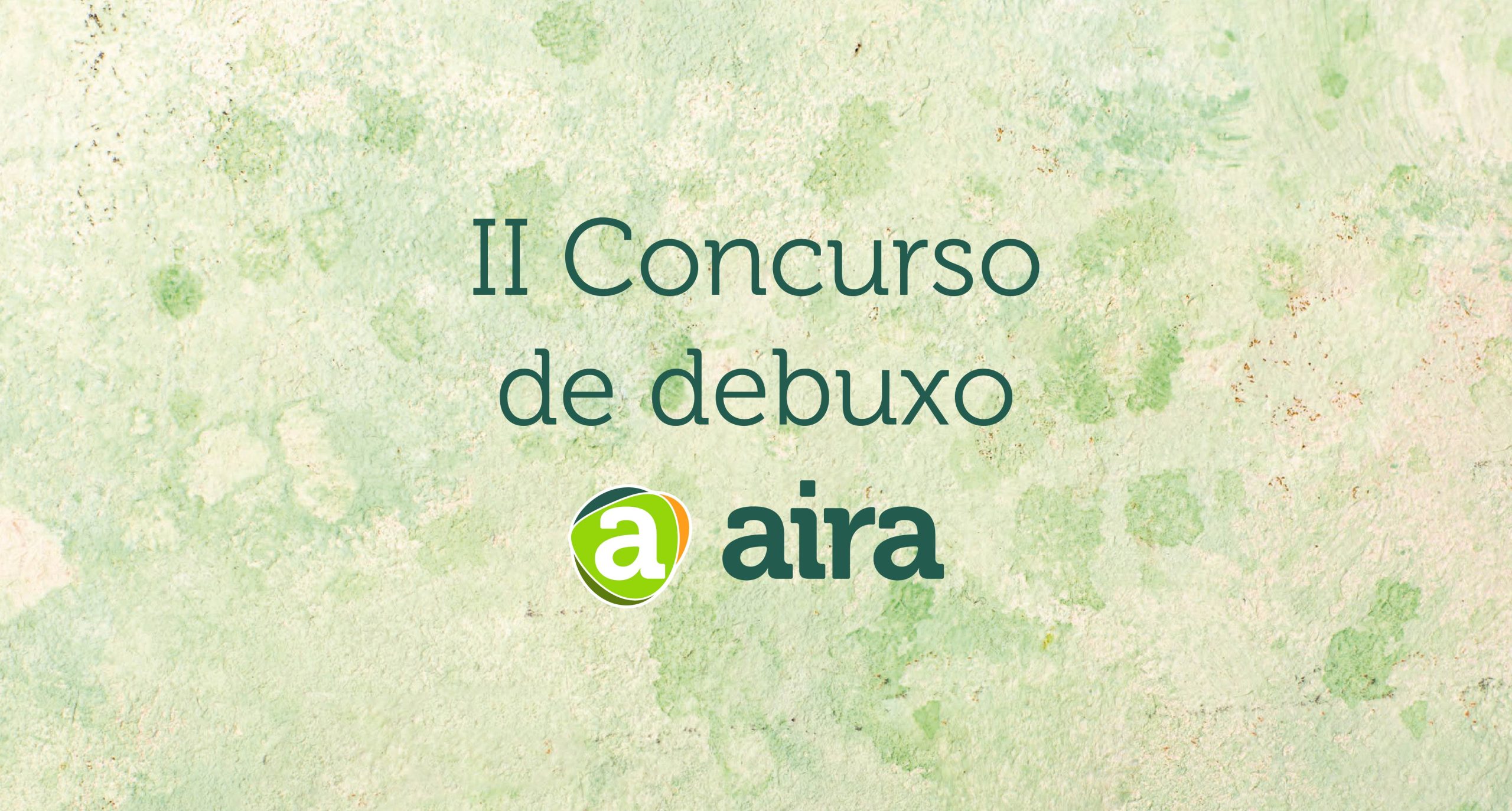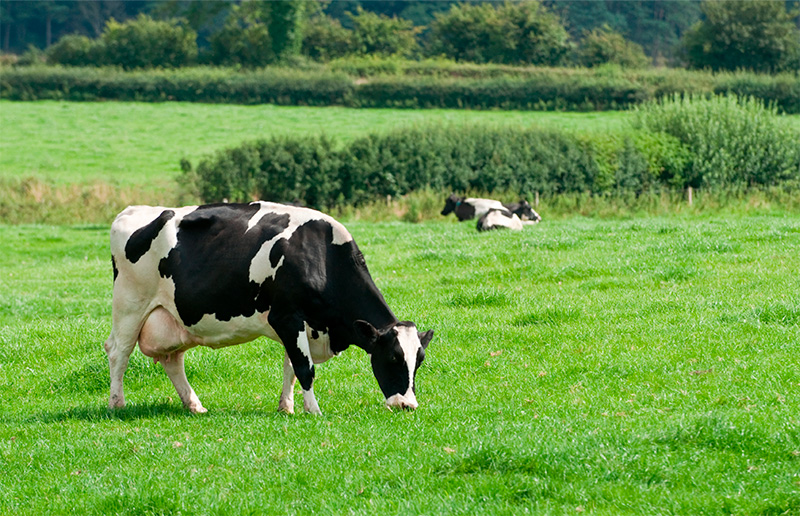In the village of Vilaceleiro, in the municipality of O Corgo, in the province of Lugo, is located Silva Livestock, one of AIRA’s partner dairy farms. Carme Silva is the owner of this family farm, in which she occasionally counts on the collaboration of her family.
“It’s clear to me that in another profession I wouldn’t be as comfortable as I am with livestock farming. It is true that we have daily routines, but I have always liked the capacity to introduce changes. Small changes can be very significant and lead to interesting improvements. It is a dynamic job in which there is always room for change and improvement, and that keeps you much more active,” she argues.
He milks an average of 37 cows on a regular basis. The herd is also made up of about 4 dry cows and 30 heifers. “We never have more than 40 cows in production, we like to have the herd adjusted to the facilities and the time we have, so that the animals are comfortable and well cared for,” he says. Except for the cows in production, which have a pasture to go out part of the day, the rest of the animals go to pasture almost all year round.
All of the rearing on the farm, except on rare occasions, is their own. One of the latest improvements they have made to the livestock has been the construction of a new facility, next to the main building, for part of the rearing and dry cows. In this space they opted for a warm bed and the cattle go out, whenever they want, to the adjoining pasture.
“We never have more than 40 cows in production, we like to have the herd adjusted to the facilities and the time we have, so that the animals are comfortable and well cared for
”
Silva Livestock has an average production of 40 liters per cow. In the latest data for August, qualities were even at 3.2% for both fat and protein. “This is the first time that the figures coincide, since we usually have higher values for both fat and protein,” says the producer. Normally they are at values of 3.9% fat and 3.3% protein. In this cattle ranch they are at 100,000 somatic cells and below 10 in bacteriology.
Accrediting quality
Theirs is one of AIRA’s partner farms that sells milk to the Cooperative. In addition, for the last two years, they have had the Animal Welfare seal, Welfair Quality, a quality certification from Aenor. This is an accreditation, which can be processed through the Cooperative, and which provides a premium in the price of the milk. In addition, they are one of the farms that also has the Cooperative’s certified cow’s milk referential certification.
Livestock is also participating in a project promoted in collaboration with the Galician Association of Agrifood Cooperatives (Agaca) to calculate the carbon and water footprint of farms, with the aim of reducing emissions. It is a study in its initial phase in which the project technicians are beginning to visit some farms to learn in detail about their livestock and land management.
On the farm they manage about 18 hectares of land dedicated to pasture, to which they add another 10 hectares of native bush and pine forests. They opted to take advantage of their land for the production of pasture and grass fodder and buy corn from producers in the neighboring municipality of Catroverde. “There they can get large productions that we here, due to the characteristics of our land, find very difficult, so we prefer to buy it,” details the livestock farmer. Her pastures are dominated by hybrid and Italian ryegrass and clover.
It is one of the farms that markets milk with AIRA and has the Aenor Animal Welfare seal
. In addition to the marketing of milk, the day-to-day operations of the farm include other services provided by the Cooperative, such as the mixer wagon. “It was a good change to start with the cart. They give us a lot of peace of mind, without having to worry about machinery breakdowns,” he says. He also has the advice of the Cooperative’s feed technicians.
Published in the September 2021 AIRA newsletter.


